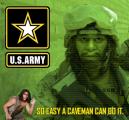He was on CBS 60 Min last night talking about his new book. His article today in the Washington Post covers many things he talked about last night. A few interesting perspectives on why the "The Surge" worked, outside of the obvious (troop increase, Petraeus strategy).
Woodward refused to eloborate last night on TV on this subject for obvious reasons:Why Did Violence Plummet? It Wasn't Just The Surge.
http://www.washingtonpost.com/wp-dyn...l?hpid=topnews
By Bob Woodward, Washington Post
Throughout the summer of 2007, as the troop surge in Iraq reached full strength, Gen. David H. Petraeus kept waiting for the tide to turn. By summer's end, the U.S. commander in Iraq got his wish. The high of 1,550 attacks a week fell below 800 -- nearly a 50 percent reduction. It has continued to fall over the past year.
Why did the violence drop so dramatically?
On one level, the surge was beginning to have its intended effect. Doubling the U.S. forces in and around Baghdad from 17,000 to nearly 40,000, coupled with Petraeus's counterinsurgency game plan, had helped quell some of the sectarian and other violence that had defined the previous year and a half. About 30 joint security stations had been established around Baghdad; security along the borders with Iran and Syria had improved; and the Iraqi army was performing better.
In Washington, conventional wisdom translated these events into a simple view: The surge had worked. But the full story was more complicated. At least three other factors were as important as, or even more important than, the surge. These factors either have not been reported publicly or have received less attention than the influx of troops.
Beginning in the late spring of 2007, the U.S. military and intelligence agencies launched a series of top-secret operations that enabled them to locate, target and kill key individuals in groups such as al-Qaeda in Iraq, the Sunni insurgency and renegade Shia militias, or so-called special groups. The operations incorporated some of the most highly classified techniques and information in the U.S. government.
Senior military officers and officials at the White House urged against publishing details or code names associated with the groundbreaking programs, arguing that publication of the names alone might harm the operations that have been so beneficial in Iraq. As a result, specific operational details have been omitted in this report and in "The War Within."
The other two reasons for success, according to Woodward:But a number of authoritative sources say the covert activities had a far-reaching effect on the violence and were very possibly the biggest factor in reducing it. Several said that 85 to 90 percent of the successful operations and "actionable intelligence" had come from the new sources, methods and operations. Several others said that figure was exaggerated but acknowledged their significance.
Lt. Gen. Stanley McChrystal, the commander of the Joint Special Operations Command (JSOC) responsible for hunting al-Qaeda in Iraq, employed what he called "collaborative warfare," using every tool available simultaneously, from signal intercepts to human intelligence and other methods, that allowed lightning-quick and sometimes concurrent operations.
Asked in an interview about the intelligence breakthroughs in Iraq, President Bush offered a simple answer: "JSOC is awesome."
Woodward also mentioned that the U.S. spied on Iraqi PM Maliki and other Iraqi Government officials, noting: "We know everything he [Maliki] says". More HERE: http://www.nytimes.com/2008/09/06/wo...rssnyt&emc=rssA second important factor in the lessening of violence was the so-called Anbar Awakening, in which tens of thousands of Sunnis turned against al-Qaeda in Iraq and signed up with U.S. forces. Al-Qaeda in Iraq had made a strategic mistake in the province, overplaying its hand. Its members had performed forced marriages with women from local tribes, taken over hospitals, used mosques for beheading operations, mortared playgrounds and executed citizens, leaving headless bodies with signs that read, "Don't remove this body or the same thing will happen to you." The sheer brutality eroded much of the local support for al-Qaeda in Iraq.
A third significant break came Aug. 29, when militant Shia cleric Moqtada al-Sadr ordered his powerful Mahdi Army to suspend operations, including attacks against U.S. troops. Petraeus and others knew it was not an act of charity. The order followed a gunfight between the Mahdi Army and Iraqi forces in the holy city of Karbala, during which more than 50 Shia pilgrims gathering for an annual festival had been killed and another 275 wounded. Sadr's order marked an unexpected stroke of good luck, another in a series for the Americans.
I've read the other three books in this series and look forward to his new one, "The War Within".







Bookmarks